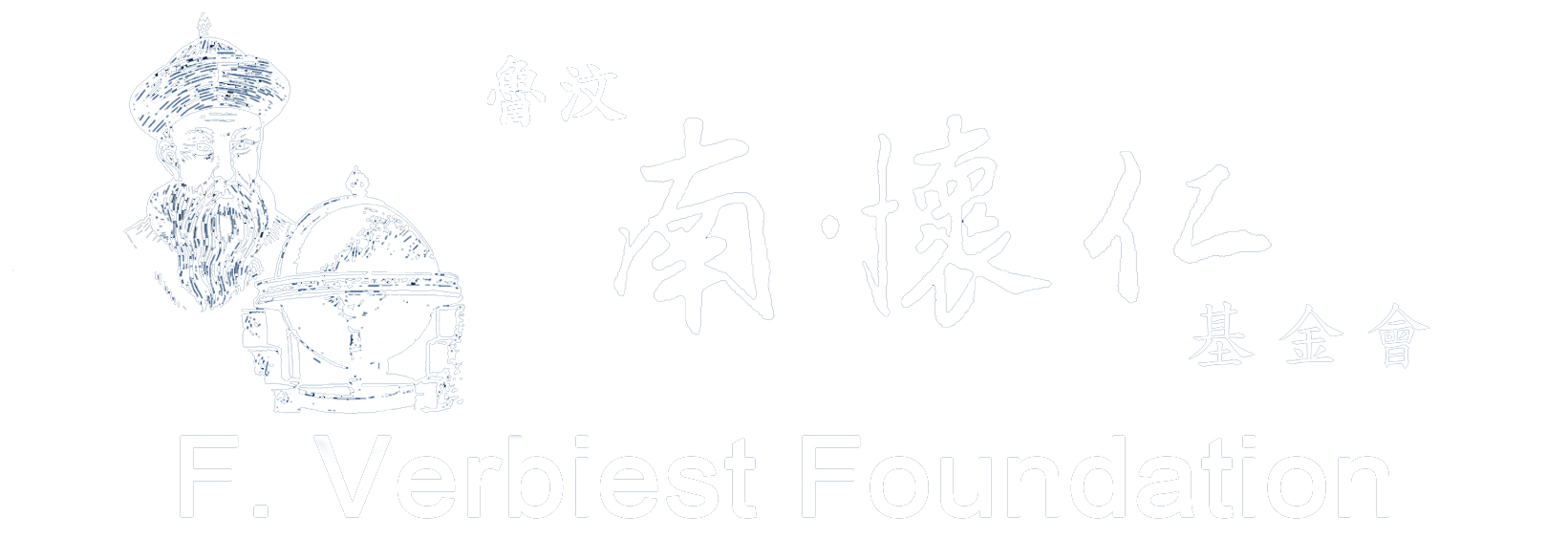血濃於水的情懷,在家庭信仰生活中展露無遺
聖母聖心愛子會東亞會長 范凱令神父
家庭的出現要早於社會及宗教,天主與我們的信德之父亞巴郎立約,賜予他子孫繁昌,即是在家庭的結構中發生。亞巴郎與妻子撒辣以行動回應天主的召叫,就如同聖若瑟履行天主旨意娶瑪利亞為妻,為家庭付出一切。
家庭成員間原始基礎的聯繫是國家和傳統宗教所熟知的生活樣貌,無論是在學術、倫理、文化或是信仰形成的領域,家庭都是社會化和教育過程的第一步。家庭可說是全體人類社會與天主教會的根源。對家庭現實的關注早已經出現在聖經當中,其中包括聖保祿宗徒呼籲基督徒家庭成為一個真正能夠見證信仰生活的團體,以家庭成員間相互關愛與緊密結合,共同傳揚福音精神(厄弗所書 5:22-6:9 或哥羅森書 3:18-22)。天主教早期教父 (亞歷山大人聖克雷孟、戴爾都良、聖奧斯定、聖金口若望)也都將目光投向了家庭與婚姻,並鼓勵家庭中年長者與父母親,藉由說明、閱讀、祈禱、慶祝和生活見證,陪伴與關心孩子們的信仰培育。而在天主教社會訓導方面,宗座勸諭《愛的喜樂》- 論家庭之愛為出發點,則持續強調「穩固的基督徒家庭生活」對於發展堅定信仰的重要性。
儘管如此,現今全世界的地方教會正在經歷一個相同的趨勢“世代空白”。教會團體將看到信仰傳承出現中斷的情況,就如同台灣天主教會目前正處於 1970 年至 2000 年出生者的“世代空白”現象,此階段的教友有些是接受長輩或父母親的信仰而領洗,卻沒有繼續傳承給下一代兒女。對於某些教友而言,領受聖洗可能是他們第一次參與教會,但也是最後一次。
台灣為非傳統的天主教國家,許多教友是在成年時領受聖洗,在非基督徒家庭背景下決定跟隨耶穌基督。這不是一件容易的事,在台灣多元宗教家庭的環境中,成為天主教友甚至可能被視為對於家庭傳統信仰的背離。其實,「血濃於水」一詞在西方最早出現在德國史詩《狐狸雷納德》中,用來描述家族血緣的聯繫不會被領洗的聖水而抹去。 但「血」和「水」並不容易一起共存,在某些情況下,正如耶穌基督於福音書中所說(路加福音12:53-55),可能導致直接的相互反對,或因信仰衝突產生暴力。然而,當和平共處時,也不能免除出現家庭內部一些緊張和彼此融合的問題。
我希望此次5月20日的「第五屆對話靈修工作坊」將提供一個在同道偕行中彼此分享的機會,讓我們可以停下來聚在一起,坐下來看、聽、反思和分享基督宗教信仰和家庭生活的議題。我們可以如何從目前的牧靈培育方向關注且加強家庭信仰的傳遞?什麼樣的新牧靈精神和社會政策適合於支持二十一世紀天主教和多元宗教家庭的信仰?基於信仰生活的需要,如何處理基督徒家庭或多元宗教家庭成員中所發生的爭執或緊張情況? 在追求信仰生活時,如何在家庭中重視和尊重每個人的自由選擇?如何虛心與你的天主來往(米該亞先知書6:8)卻不撇下任何人,包括我們所愛的家人?
家庭成員間原始基礎的聯繫是國家和傳統宗教所熟知的生活樣貌,無論是在學術、倫理、文化或是信仰形成的領域,家庭都是社會化和教育過程的第一步。家庭可說是全體人類社會與天主教會的根源。對家庭現實的關注早已經出現在聖經當中,其中包括聖保祿宗徒呼籲基督徒家庭成為一個真正能夠見證信仰生活的團體,以家庭成員間相互關愛與緊密結合,共同傳揚福音精神(厄弗所書 5:22-6:9 或哥羅森書 3:18-22)。天主教早期教父 (亞歷山大人聖克雷孟、戴爾都良、聖奧斯定、聖金口若望)也都將目光投向了家庭與婚姻,並鼓勵家庭中年長者與父母親,藉由說明、閱讀、祈禱、慶祝和生活見證,陪伴與關心孩子們的信仰培育。而在天主教社會訓導方面,宗座勸諭《愛的喜樂》- 論家庭之愛為出發點,則持續強調「穩固的基督徒家庭生活」對於發展堅定信仰的重要性。
儘管如此,現今全世界的地方教會正在經歷一個相同的趨勢“世代空白”。教會團體將看到信仰傳承出現中斷的情況,就如同台灣天主教會目前正處於 1970 年至 2000 年出生者的“世代空白”現象,此階段的教友有些是接受長輩或父母親的信仰而領洗,卻沒有繼續傳承給下一代兒女。對於某些教友而言,領受聖洗可能是他們第一次參與教會,但也是最後一次。
台灣為非傳統的天主教國家,許多教友是在成年時領受聖洗,在非基督徒家庭背景下決定跟隨耶穌基督。這不是一件容易的事,在台灣多元宗教家庭的環境中,成為天主教友甚至可能被視為對於家庭傳統信仰的背離。其實,「血濃於水」一詞在西方最早出現在德國史詩《狐狸雷納德》中,用來描述家族血緣的聯繫不會被領洗的聖水而抹去。 但「血」和「水」並不容易一起共存,在某些情況下,正如耶穌基督於福音書中所說(路加福音12:53-55),可能導致直接的相互反對,或因信仰衝突產生暴力。然而,當和平共處時,也不能免除出現家庭內部一些緊張和彼此融合的問題。
我希望此次5月20日的「第五屆對話靈修工作坊」將提供一個在同道偕行中彼此分享的機會,讓我們可以停下來聚在一起,坐下來看、聽、反思和分享基督宗教信仰和家庭生活的議題。我們可以如何從目前的牧靈培育方向關注且加強家庭信仰的傳遞?什麼樣的新牧靈精神和社會政策適合於支持二十一世紀天主教和多元宗教家庭的信仰?基於信仰生活的需要,如何處理基督徒家庭或多元宗教家庭成員中所發生的爭執或緊張情況? 在追求信仰生活時,如何在家庭中重視和尊重每個人的自由選擇?如何虛心與你的天主來往(米該亞先知書6:8)卻不撇下任何人,包括我們所愛的家人?
Thicker than water
On Christian Faith and Family life dynamics
Author - Father Francisco Carin, C.M.F.
( Father Francisco Carin, C.M.F. is the Spanish-born major superior of the East Asia delegation of the Claretian Missionaries.)
( Father Francisco Carin, C.M.F. is the Spanish-born major superior of the East Asia delegation of the Claretian Missionaries.)
Family is a human reality that precedes both society and religious faith. The call of Abraham, our father in faith, happened within the framework of the family. He was called together with Sara in the same way as Joseph was not left out of Mary’s “fiat”.
This primeval bond and foundational stage of human family is something well-known by states and religious traditions, as it is the first step of socialization and education processes, no matter if it is academic, ethical, cultural or faith formation realm. The family is at the root of any human society, including the Catholic Church. Attention to the reality of the family was already present in the first Christian writings, among them St. Paul and his call to make the Christian family a truly witnessing Christian community, bonded by charity and able to be witness of the Good News of Jesus Christ (e.g., Eph. 5:22-6:9 (6:5?) or Col. 3:18-22). The Fathers of the Church (Clement of Alexandria, Tertullian, Augustine of Hippo, John Chrysostom…) also turned their gaze to the family, especially in the context of Marriage, and encouraged the family elders to care for the Christian education of their offspring through introducing and accompanying them in reading, praying, celebrating, and life-witnessing. The teaching of the Catholic Church, up to the recent document from Pope Francis “Amoris Laetitia - On Love in the Family”, has continued deepening on the importance of a well-founded Christian family life for the development of a solid faith.
Still, local churches all over the modern world have been experiencing a common trend: the “generation void”. Sooner or later Christian communities see how transmission of faith has been broken and a generation vanishes. Our Catholic communities in Taiwan are now in the midst of this “generation void” phenomenon among those born between 1970 and 2000; the early ones often are already parents who were introduced to the mysteries of faith by their elders but they have failed to do so with their children, who in many cases were baptized to just please requests from their elders; for many of these children their baptism may be the first time they joined the Christian community… and the last one.
Taiwan as a non-traditionally Catholic country has an abundant experience of adult baptism; people who decided to follow Jesus Christ out of a non-Christian family context. This is not an easy feat, and in the multireligious context of Taiwanese families, sometimes this step even may be seen as a “betrayal”. In fact, the first appearance of “Blood is thicker than water” is in the German beast epic “Reynard the Fox”, where it was used to mean that the bonds of family blood are not erased by the waters of baptism. They are not indeed, but “blood and water” do not always enjoy an easy coexistence, leading in some cases, as Jesus says in the Gospels (Lk. 12:53-55), to direct opposition and even violence for the cause of faith. Yet, when coexistence is peaceful, it is not exempted of tensions and integration problems within the family.
I hope that this “5th Workshop on the Spirituality of Dialogue” will offer an opportunity in synodal spirit, so that we can pause, come together, sit, see, listen, reflect and share on the issue of Christian faith and family life in our context. How to be attentive and empower transmission of faith in the family from present pastoral platforms? What kind of new pastoral and social strategies may be adequate to support faith in Christian and multireligious families in the XXI century? How to deal with personal and family struggles and tensions in both Christian and multireligious families due to the demands of Christian life? How to value and respect in the family each person’s freedom and choices while pursuing a life of faith? How to walk humbly with our God (Mic. 6:8) without leaving anyone, especially family loved ones, behind?

